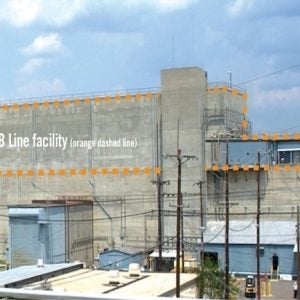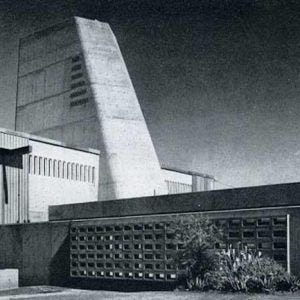A fund managed by the European Bank for Reconstruction & Development (EBRD) has agreed to grant aid of €70 million to four projects cleaning up nuclear contamination in northwest Russia.
As manager of the Northern Dimension Environmental Partnership (NDEP) Support Fund, the EBRD signed the funding agreements with Rosatom, the Russian state corporation for atomic energy. The largest contract is worth €43 million and covers dismantling a former service ship’s damaged spent nuclear fuel and radioactive waste. The five-year project will involve dismantling Lepse at its Barents Sea port Murmansk moorings after retrieving spent fuel and safely managing its radioactive waste.
Another €20 million project involves creating local temporary services over three years for transporting, then storing, spent nuclear fuel from Andreeva Bay, just 30 miles from the Norwegian border. There, 22,000 spent nuclear fuel assemblies from nuclear-powered submarines and icebreakers “are kept in unsafe condition,” according to the EBRD. The project aims to create safe “buffer” storage, while a long-term “overall remediation plan to retrieve and ship the fuel for treatment or long-term storage” is developed, said a bank memorandum.
A third project, of €5.6 million, involves the defuelling by Rosatom of 1960s-built Papa class nuclear submarines over two-and-a-half-years, with spent fuel being unloaded and stored safely. This would “improve the environmental situation and reduce risks of nuclear and radiological accidents,” said the EBRD. And a fourth €5.1 million grant will help improve radiation monitoring and emergency response systems in the Arctic Arkhangelsk Oblast (region), which also has sites of substantial nuclear materials and devices. The money will help over two-and-a-half years install modern monitoring and communications systems and develop emergency plans covering all nuclear hazards in this region, east of Murmansk and Andreeva Bay. The Administration of the Arkhangelsk Region and the Nuclear Safety Institute of the Russian Academy of Sciences will manage this project.
External weblinksNuclear Engineering International is not responsible for the content of external internet sites.Chemical, Biological, Radiological and Nuclear Inventory






